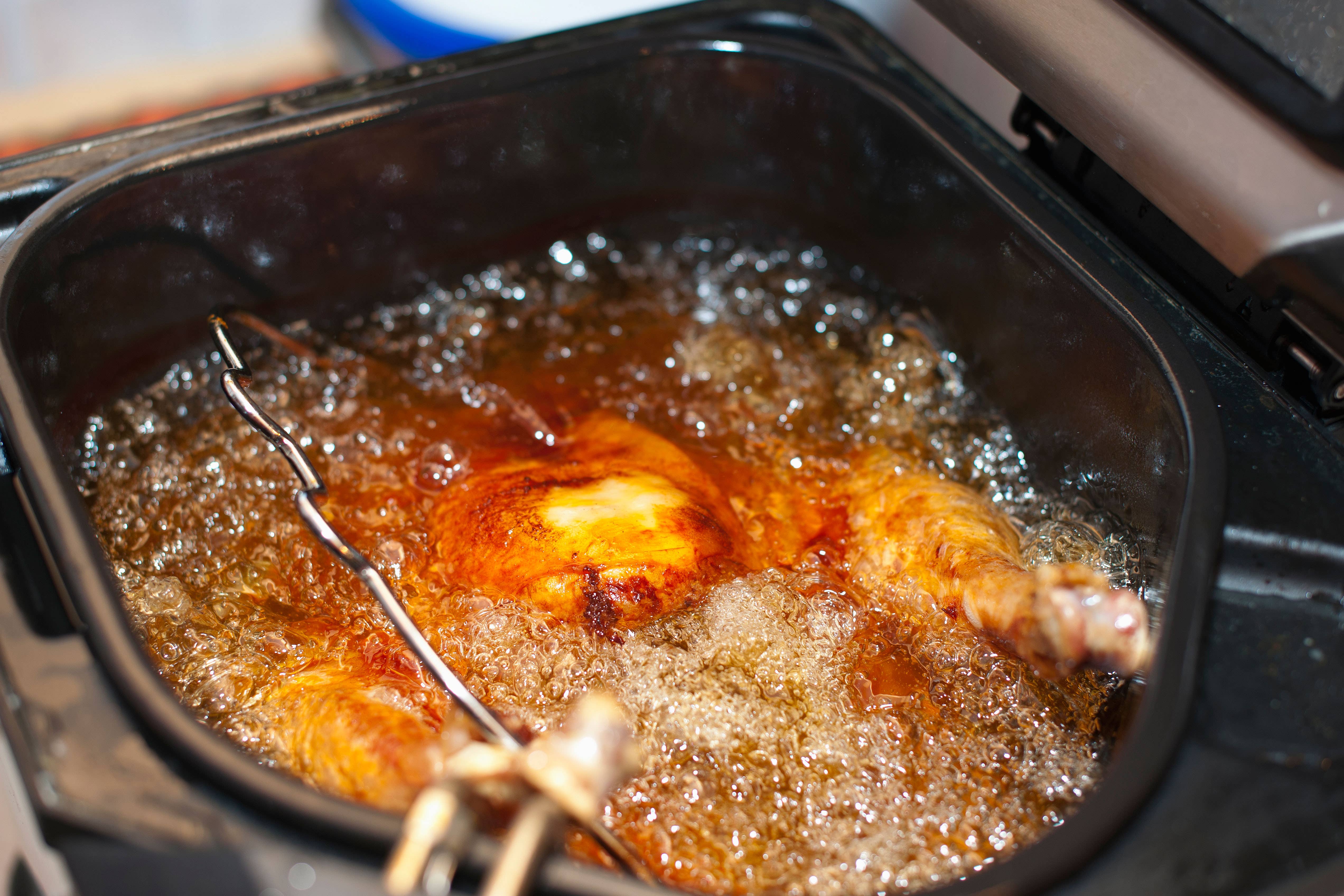Warning issued over pouring turkey fat down sink at Christmas
Water UK has issued a warning to families to dispose of cooking fats, oils and greases responsibly to avoid blocked pipes.

Your support helps us to tell the story
From reproductive rights to climate change to Big Tech, The Independent is on the ground when the story is developing. Whether it's investigating the financials of Elon Musk's pro-Trump PAC or producing our latest documentary, 'The A Word', which shines a light on the American women fighting for reproductive rights, we know how important it is to parse out the facts from the messaging.
At such a critical moment in US history, we need reporters on the ground. Your donation allows us to keep sending journalists to speak to both sides of the story.
The Independent is trusted by Americans across the entire political spectrum. And unlike many other quality news outlets, we choose not to lock Americans out of our reporting and analysis with paywalls. We believe quality journalism should be available to everyone, paid for by those who can afford it.
Your support makes all the difference.Families are being urged not to pour turkey fat down the sink this Christmas – or risk flooding their homes.
Trade association Water UK has issued a warning to families to dispose of cooking fats, oils and greases responsibly to avoid blocked pipes, property damage and harm to the environment.
It comes as research shows that 27% of UK adults dispose of their fats down the sink, 22% down the drain and 11% down the toilet.
A new national campaign from Water UK is encouraging people to avoid putting any leftover fats, oils or greases down the sink.
Fats, oils and greases poured down the sink or drain harden in cold pipes. They combine with wet wipes and other unflushable items to create ‘fatbergs’ which block sewer pipes, leading to sewage flooding homes and streets, and pollution in waterways. They can also block pipes in homes.
Sewer blockages cost the UK up to £200 million each year, and more than 3,000 homes are flooded because of them, Water UK said.
Thames Water also shared a warning to customers on Christmas Eve.
It posted on X, formerly Twitter, saying: “If you’re hosting over the festive period, remember that leftover oil, gravy, sauces or custard go in your food waste or bin.
“If they’re rinsed down the sink, they can clog up your pipes and cause a major backup.”
And South West Water said that last year it dealt with more than 7,000 blocked sewers with over 20% of these caused by fats, oils and greases being poured down drains.
Tips on how to responsibly dispose of fats, oils and grease include:
– Allow them to cool and wipe away with kitchen towel and place in the bin.
– Cooled oils can be poured into a heatproof container, then placed in the bin.
– Pour into a pot and use again to cook another meal.
– Use a sink strainer to catch greasy food scraps.
William Davies, communications director at Water UK, said: “We all love our Christmas dinner but cooking up that delicious festive feast leaves behind a trail of leftover fat, oil and grease.
“Amid the yuletide cheer the last thing we want to think about is what should happen to this gloopy mess. But disposing of it down the sink or drain can cause real problems in our sewers, harm wildlife and block the pipes in our homes as well.
“This festive season why not do your bit to protect your ho, ho home by putting any fats, oils and greases in the bin and not down the sink.”
Water minister Robbie Moore said: “As millions gather for Christmas meals with family and friends, proper disposal of the fats, oils and greases we use to cook our roast dinners won’t be high on the festive agenda for many – but it is crucial to protect the environment.
“We know that when oils and fats are put down the sink, they can contribute to build-ups of fatbergs in our sewers, bringing the risk of blocked pipes and sewage spills.
“To protect our waterways this Christmas and beyond our Plan for Water is delivering more investment, stronger regulation and tougher enforcement in the water sector.”